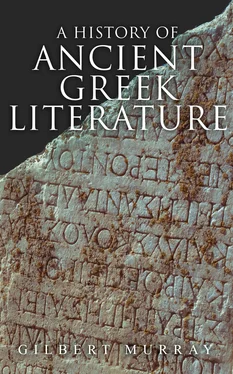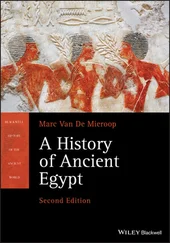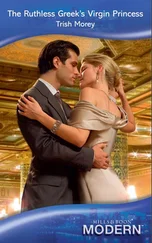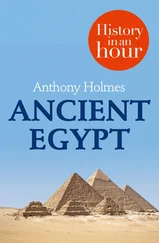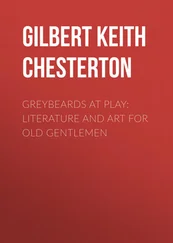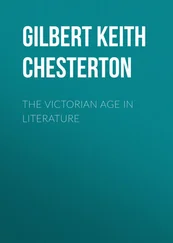We hear of traditional tunes in Greece only by desultory and unscientific accounts. The 'Skolia' or drinkingsongs had a very charming traditional tune for which no author is mentioned. Various flute-tunes, such as 'the Many-headed,' 'the Chariot,' are attributed to a certain Olympus, a Phrygian, son of the satyr Marsyas, whose historical credit cannot be saved by calling him 'the younger Olympus.' The lyre-tunes go back mostly to Terpander of Antissa, in Lesbos. Two statements about him have a certain suggestiveness. When Orpheus was torn to pieces -- as a Bacchic incarnation had to be -- by the Thracian women, his head and lyre floated over the sea to Terpander's island. Terpander is thus the developer of Æolic or native Greek harp-music. But he also learned, we are told, from the Cretan Chrysothemis. Now, Crete was one of the first Dorian settlements. So Terpander is a junction of the native string-music with that of the Dorian invader. All that we know of him, his name 'Charmer-of-men' included, has the stamp of myth. He gave the lyre seven strings instead of four. Seven tunes are mentioned as his invention; one particularly, called the 'Terpandrian Nomos,' is characterised by its seven divisions, instead of the simple three, Beginning, Middle, and End. He won four musical prizes at Delphi -- at a time before there were any contests. He is the first musical victor in the Carneia at Sparta. All these contests existed at first without fixed records, and the original victor is generally mythical.
The conclusion is that, as there was heroic legend, so there was song in most cantons of Greece before our earliest records. The local style varied, and music was generally classified on a geographical basis -- 'the Phrygian style,' 'the Ionian,' 'the Dorian,' ' the hypo-Dorian,' 'the hyper-Phrygian,' 'the Lesbian,' and so on. The division is puzzling to us because it is so crude, and because it implies a concrete knowledge of the particular styles to start with. The disciples of Socrates, who saw every phenomenon with the eye of the moralist, are strong upon the ethical values of the various divisions: the Dorian has dignity and courage, the Phrygian is wild and exciting, the Lydian effeminate, the Æolian expresses turbulent chivalry. This sounds arbitrary; and it is satisfactory to find that while Plato makes the Ionic style 'effeminate and bibulous,' his sciple Heraclîdes says it is 'austere and proud.' The Socratic tradition especially finds a moral meaning in the difference between string and wind instruments. The harp allows you to remain master of yourself, a free and thinking man; the flute, pipe, or clarionette, or whatever corresponds to the various kinds of 'aulos,' puts you beside yourself, obscures reason, and is more fit for barbarians. As a matter of fact, the 'aulos' was the favourite instrument in Sparta, Bœotia, and Delphi. Too stimulating for the sensitive Athenian, it fairly suited the Dorian palate. It would probably be milkand-water to us.
The local styles of music had generally corresponding styles of metre. Those of Lesbos and Teos, for instance, remained simple; their music appeals even to an untrained ear. The ordinary Ionic rhythms need only be once felt to be full of magic, the Dorian are a little harder, while many of the Æolian remain unintelligible except to the most sympathetic students. The definite rules, the accompaniment of rhythmic motion and constant though subordinate music, enabled the Greeks to produce metrical effects which the boldest and most melodious of English poets could never dream of approaching. There is perhaps no department of ancient achievement which distances us so completely as the higher lyric poem. We have developed music separately, and far surpassed the Greeks in that great isolated domain, but at what a gigantic sacrifice!
The origin of the word Elegy is obscure. It may have been originally a dirge metre accompanied, when sung, by the 'aulos.' But we meet it first in war-songs, and it became in course of time the special verse for love. The oldest known elegist, CALLÎNUS, comes from Ephesus, and writes in a dialect like that used in the Ionic parts of Homer. His wars are partly against the invading Kimmerians (about 650 B.C.), partly against the town of Magnesia. He was about contemporary with the great Archilochus (p. 86 ); but Callinus speaks of Magnesia as still fighting, while Archilochus mentions its fall. TYRTÆUS of Aphidna wrote elegiac war-songs for the Spartans in the Second Messenian War ( 685-668 B.C.), and speaks as a Dorian noble, a Spartiate. But there was an Aphidna in Attica as well as in Laconia; and Athenian malice remodelled an old joke into the anecdote that Sparta, hard pressed in the war, had sent to Athens for a leader, and that Athens had sent them a lame schoolmaster, who woke the dull creatures up, and led them to victory. In the same spirit, the Samians used to tell how they lent the men of Priênê a prophetess to help them against the Carians -- even a Samian old woman could teach the Prieneans how to fight! Tyrtæus becomes a semi-comic character in the late non-Spartan tradition -- for instance, in the Messenian epic of Rhiânus ( third century B.C.); but his Doric name, the fact that his songs were sung in Crete as well as in the Peloponnese, and the traditional honours paid to him at Lacedæmonian feasts, suggest that he was a personification of the Doric war-elegy, and that all authorless Doric war-songs became his property -- for instance, the somewhat unarchaic lines quoted by the orator Lycurgus. The poems were, of course, originally in Doric; but our fragments have been worked over into Ionic dress, 3and modernised. The collection, which includes some anapæstic marching-songs, comes from Alexandria, and has the special title Eunomia, 'Law and Order.'
The greatest poet among the elegists is MIMNERMUS of Colophon. He is chiefly celebrated for his Nanno ,* a long poem, or a collection of poems, on love or past lovers, called by the name of his mistress, who, like himself, was a flute-player. But his war fragments are richer than those of Tyrtæus or Callînus, and apart from either love or war he has great romantic beauty. For instance, the fragment: --
"Surely the Sun has labour all his days,
And never any respite, steeds nor god,
Since Éos first, whose hands are rosy rays,
Ocean forsook, and Heaven's high pathway trod;
At night across the sea that wondrous bed
Shell-hollow, beaten by Hephaistos' hand,
Of wingèd gold and gorgeous, bears his head
Half-waking on the wave, from eve's red strand
To the Ethiop shore, where steeds and chariot are,
Keen-mettled, waiting for the morning star."
The influence of Mimnermus increased with time, and the plan of his Nanno * remained a formative idea to the great elegiac movement of Alexandria and its Roman imitators. There is music and character in all that he writes, and spirit where it is wanted, as in the account of the taking of Smyrna.
The shadowiness of these non-Attic poets strikes us as soon as we touch the full stream of Attic tradition in SOLON, son of Exekestides ( 639-559 B.C.). The tradition is still story rather than history, but it is there: his travels, his pretended madness, his dealings with the tyrant Pisistratus. The travels were probably, in reality, ordinary commercial voyages, but they made a fine background for the favourite Greek conception of the Wise Wanderer. We hear, in defiance of chronology, how he met the richest of kings, Crœsus, who showed all his glory and then asked who was the 'most fortunate' man in the world. Solon named him certain obscure persons who had done their duty and were loved by their neighbours and were now safely dead. The words seemed meaningless at the time, but had their due effect afterwards -- on Crœsus when Cyrus was in the act of burning him to death; and on Cyrus when he heard the story and desisted from his cruel pride.
Читать дальше
